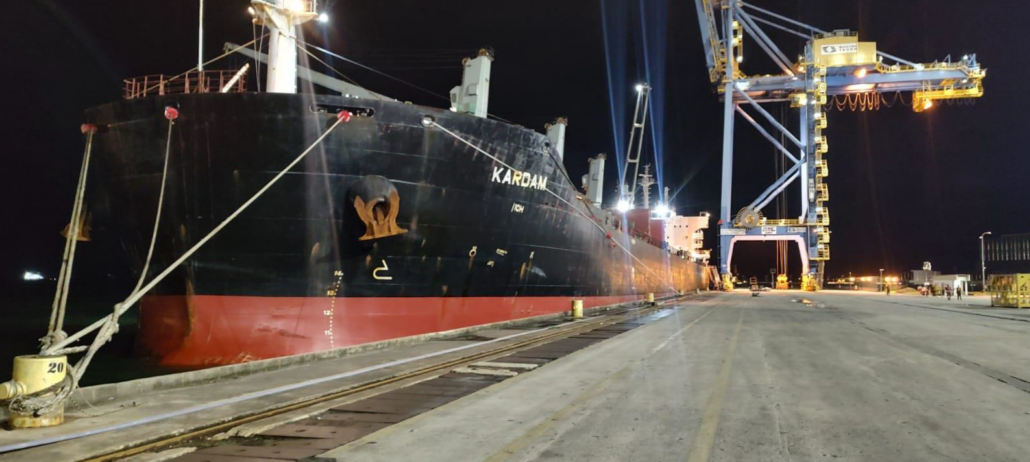AEC opt for a Kamsarmax to load gypsum.
MV Seaduty, a Japanese Tsuneishi built 82,449 mts deadweight, loading with four payloaders.
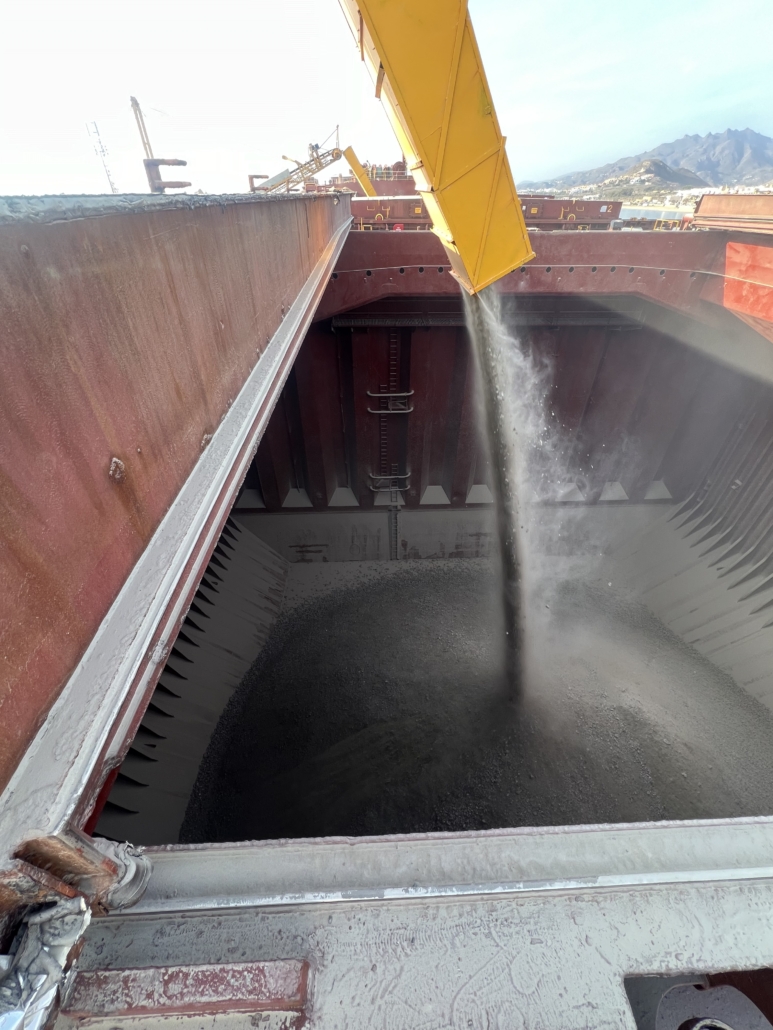
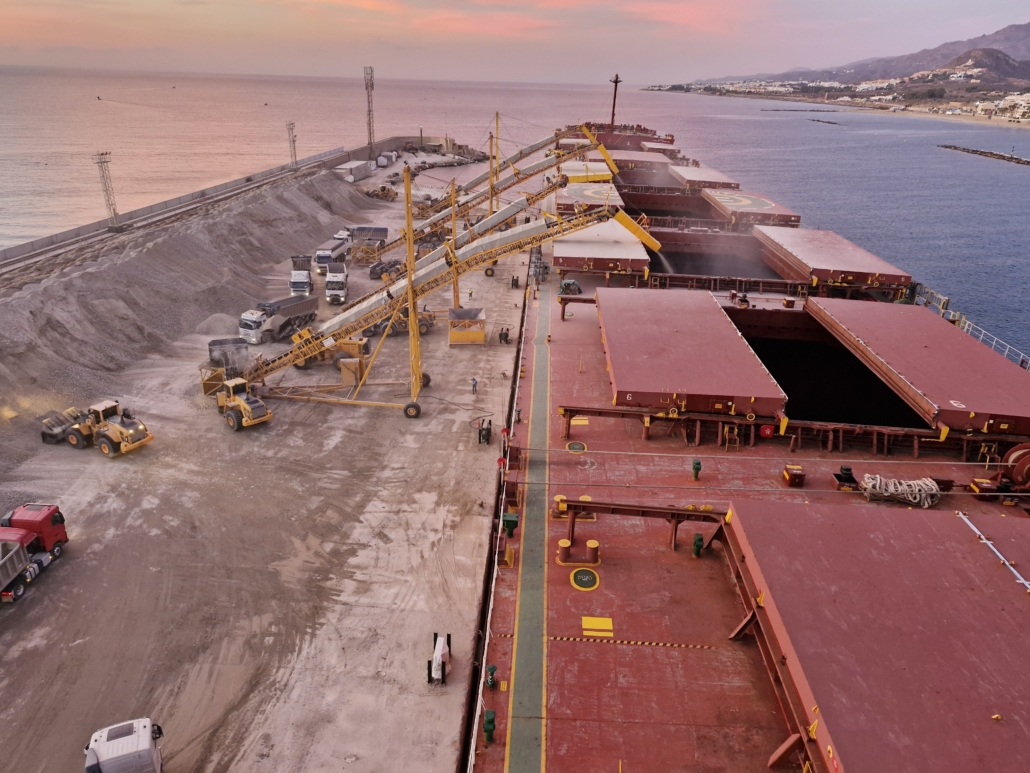
MV Seaduty, a Japanese Tsuneishi built 82,449 mts deadweight, loading with four payloaders.


The vessel is Japanese built at Shin Kurushima with a deadweight of 39,953 mts.
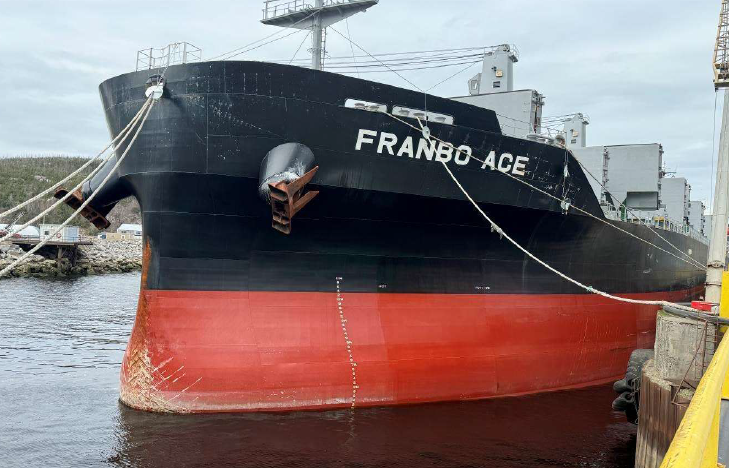
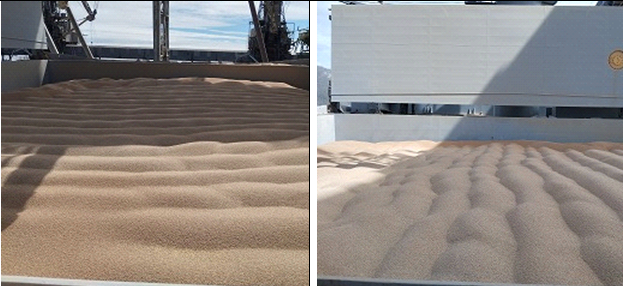

Grab operation:
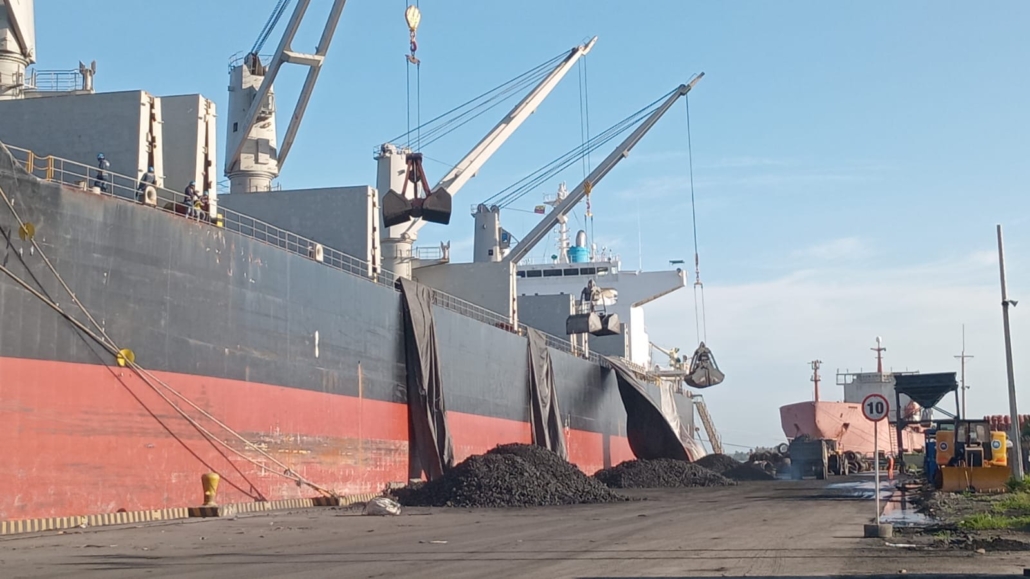
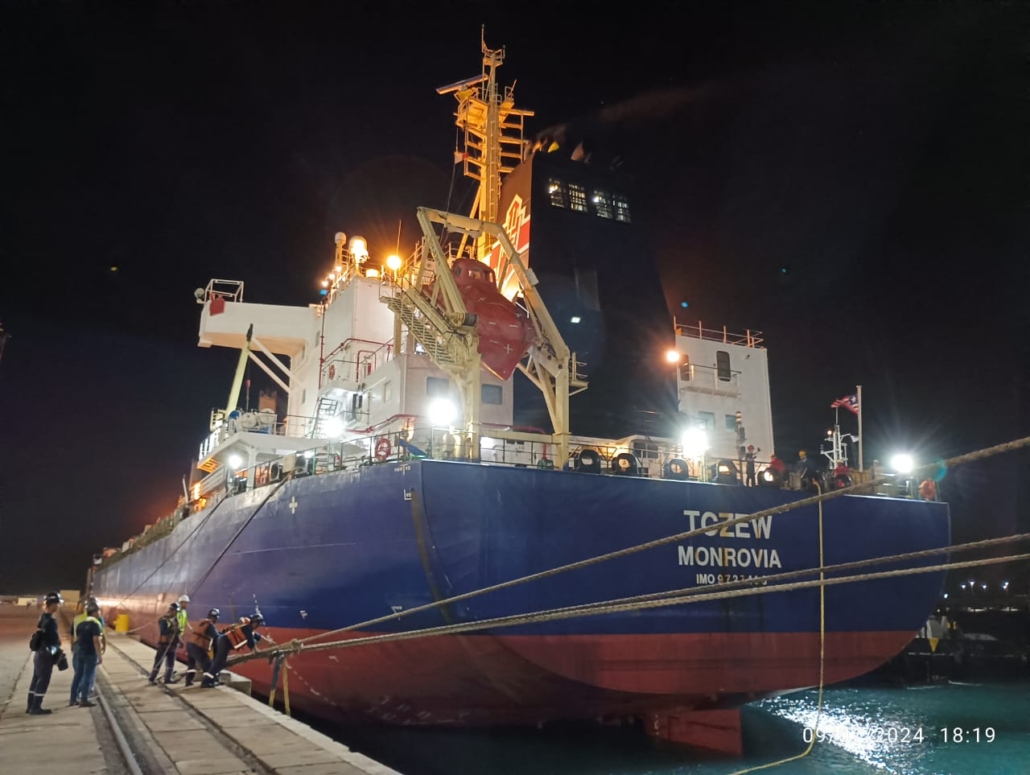
Crane & Spreader:
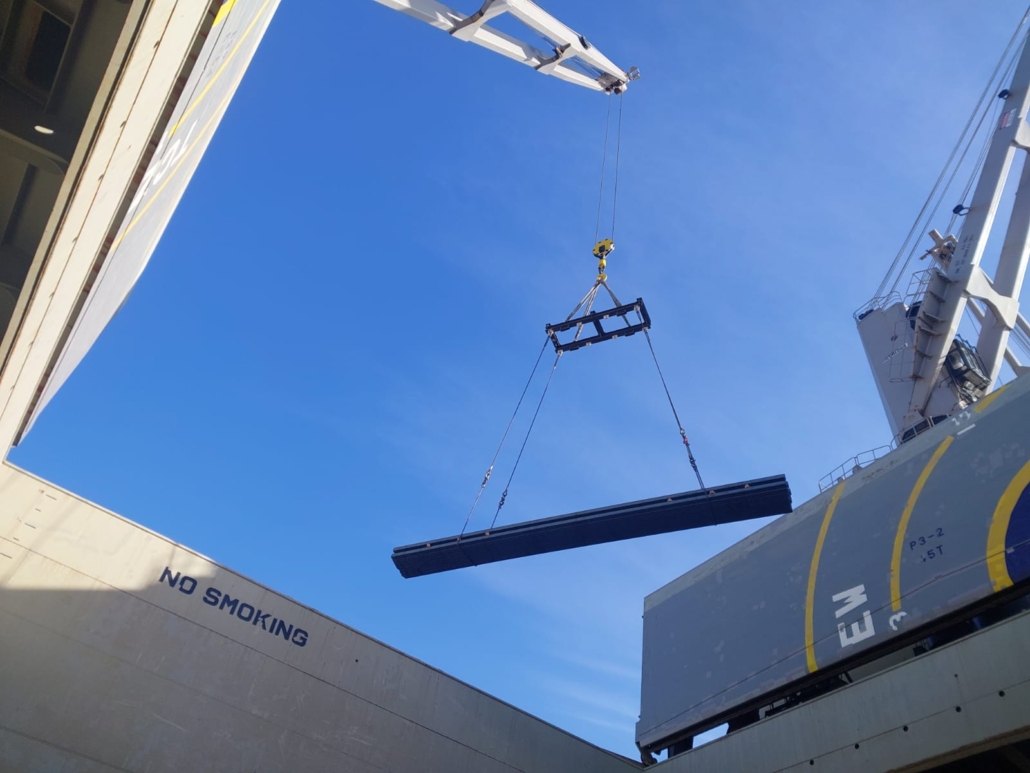
Cargo being stowed in holds:


MV Kardam alongside in Brazil:
